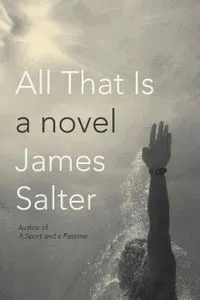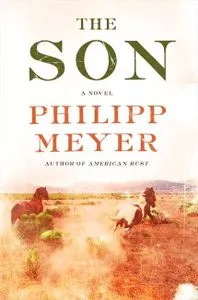
The Best Books of 2013: Halftime Report

Salter’s first novel in 34 years was hotly anticipated, and for good reason: it is gobsmackingly excellent. Salter presents Philip Bowman, a World War II vet turned book editor, as he navigates love, loss, and the constantly changing culture of 20th-century America. All of the Salter trademarks are here: gorgeous prose, elegantly written sex scenes (Salter’s sex writing is singular in contemporary lit fic), fully realized peripheral characters, evocative settings. Book nerds will also appreciate the inside-baseball peeks at the publishing industry and Bowman/Salter’s rhapsodic odes to reading. “He liked to read with the silence and the golden color of the whiskey as his companions. He liked food, people, talk, but reading was an inexhaustible pleasure. What the joys of music were to others, words on a page were to him.”
–Rebecca Joines Schinsky James Salter, forever and always. On every page, I learned the beauty of restraint. –Jennifer PaullMultigenerational saga + the wilds of the Texas frontier + violence and grit and oil, etc.+ a matriarchal character who is tough as nails and twice as sharp = a perfect storm of a book. I’ve said before that this book is East of Eden meets Cormac McCarthy, and that’s still true. If you like your Westerns with a heaping dose of thoughtful darkness that doesn’t sacrifice the action, this one is your jam.
–Amanda Nelson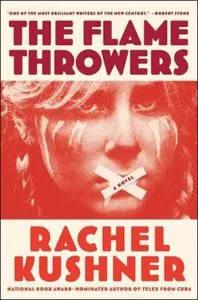
First of all, I’m a sucker for New York novels. And if you give me some motorcycles, 1970s art world, a cast of characters that seem like they fell out of a really dark Wes Anderson movie, and I am completely disarmed. This has some beautiful passages and, though, it takes awhile to get going, a quietly compelling plot. If you like literary fiction, this is one you should check out.
–Jeff O’Neal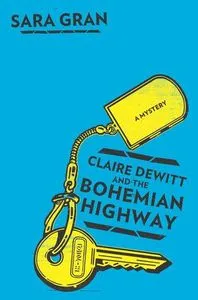
First off, let me start by saying the first book in this series, Claire DeWitt and the City of the Dead, is amazing. With that book, I think Gran introduced the first fantastic female detective of the 21st century. I loved it so much. And now with Bohemian Highway, she has outdone herself. This book is so much more than a whodunnit – in fact, the whodunnit is secondary to the important parts of the story, about Claire and her life. There’s a mystery involving a dead ex-boyfriend, but also one about a friend who went missing when Claire was a teen. And then there’s Claire herself, damaged and drug-fueled, trying to make sense of things as best she can. And she doesn’t always come out on top. Gran has taken the detective novel and created something jaw-dropping, a beautiful tale of how to find other people while you’re losing yourself. Just writing about it is making the hairs on my arms stand up. It’s powerful stuff. And there’s going to be more!
–Liberty Hardy
Knowing I was #137 in line for The Interestings at the library, a good friend lent me his just-finished copy and it almost went straight to the bottom of the stack on my nightstand. But something made me take a quick peek inside, and everything else got instantly demoted. The Interestings is War and Peace without the war — like Leo (but with more sexy bits), Wolitzer uses a cast of unlikely childhood friends to explore the ways fortunes change and relationships shapeshift against the backdrop of sweeping social change. Three boys and three girls sneak into each others’ teepees at an artsy New England summer camp in 1974, and the rest of the book kaleidoscopes in and out on all the time between then and now, with enough rivalries and love triangles to make papa Tolstoy proud. And everything else is there, too: Nixon, the folk scene, acid, Reagan, AIDS, even The Moonies. For me, The Interestings was unputdownable.
–Rachel Smalter Hall

I have a deep weakness for sports nonfiction, so I was pre-disposed to fall in love with this book.The Boys in the Boat is the story of the 1936 eight-man Olympic crew team, a group of working-class college kids taking on the elite crew teams of Europe in Nazi Germany. It’s got all the makings of a classic sports underdog story, but what surprised me about it was how much DJB made me deeply, utterly care about this group of boys and sport that I knew nothing about. It’s such a good read.
–Kim Ukura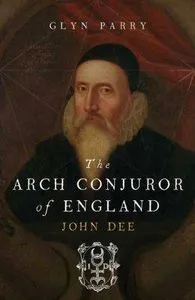
The life of John Dee has been a gift to fiction writers for centuries – there are convincing arguments to be made that he served as inspiration for both Prospero and Dr Faustus, among others. Glynn Parry’s nonfiction study offers what is perhaps an even more compelling figure. Despite the polymathic diversity of his achievements – scholar, navigator, mathematician and architect of what would become the British Empire – Dee remains best known as the private occultist of Elizabeth I, ranking above Crowley and Cagliostro in the popular imagination of practicing magicians. Unlike many examinations of Dee however, Parry’s book is more concerned with truth than legend, using Dee as a means of exploring an Elizabethan age far stranger and more esoteric than many might expect. The result is an immersive journey into reconsidered realms of history that never fails to fascinate or surprise.
–Sean Bell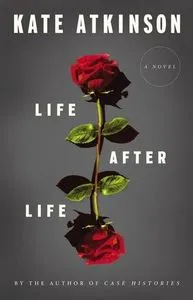
I know everyone keeps telling you to read this book. So why haven’t you? Are you just being contrary or something? Quit it. Life After Life is a tough book to describe, but it essentially tells the story of a woman born in 1910 who, whenever she dies, just starts over again with lingering memories of the last time around. Over the course of the novel, the narrative stacks and layers and interleaves. Wars are lived and relived. Characters are met, then met again in different circumstances. But the effect isn’t dulling—it’s illuminating and invigorating.
–Derek Attig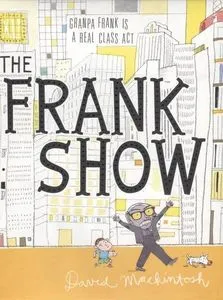
My favorite picture book so far this year is about a young boy who worries about having to bring his curmudgeon of a grandfather into class for show-and-tell. While there is nothing surprising about the plot itself, the execution is so good that it doesn’t matter. Mackintosh’s illustrations are hilarious and intricately haphazard, if that makes any sense–think of a collaboration between Wes Anderson and Ralph Steadman. And while the overall message is endearing, it never tips over into the sickeningly sweet. In the hands of another author you might get hit over the head with an overly sentimental life lesson that culminates with a group hug and a Cat Stevens song. Mackintosh, on the other hand, deftly handles the boy’s newfound appreciation for his grandfather who, despite his worn pajamas and creaky limbs, turns out to be quite the badass.
–Minh Le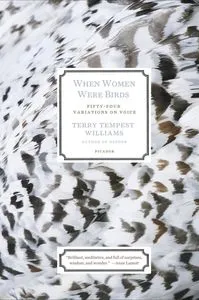
This book came out the day after my birthday, and four months later it still feels like one of the best gifts I’ve ever gotten. In these 54 variations on voice, Williams contemplates what it means to be a woman, a daughter, a mother, a wife. What it means to say, or not say, the thoughts that we keep close to our hearts. How we choose to live in this world, the choices she’s made or didn’t make, and where to go from there. It is poetry as much as it is memoir and if you’re anything like me, phrases and passages will get carved into your brain. Williams is a gorgeous writer with a voice that rings like a bell, who evokes nature as clearly as she does the human heart.
–Jenn Northington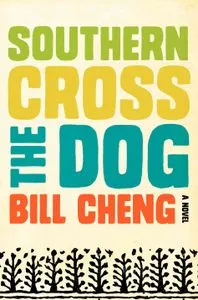
Cheng was born and raised in Queens, New York, attended the very prestigious Baruch College where he received a BA in creative writing, followed by an MFA from Hunter College, both in New York City. He currently lives in Brooklyn, and Southern Cross the Dog is his first novel. Um, that’s a LOADED book title. WC Handy made it famous in his song “Yellow Dog Blues,” and there is a sign in Moorehead, Mississippi to mark the railroad crossing “Where Southern Crosses the Dog.” You can only imagine my skepticism with this book. It was laid on pretty thick. A New Yorker writing about the Mississippi Flood of 1927 AND blues culture? My bad, y’all. Bill Cheng totally sets words on fire. He nails the setting, the language, and the feels.
–Emily Gatlin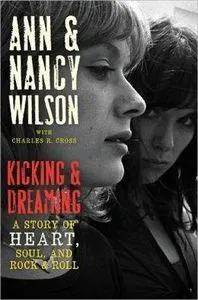
As I may have mentioned a time or eighty-eight before, this is the kind of book I’ve been waiting for exactly my whole entire life. It’s a book about American rock & roll from a female perspective that isn’t all about recoupable debt and how Alanis Morissette ruined everything (okay, I only read two rock & roll memoirs about how she ruined everything, but still . . . ). The Wilson sisters pull no punches in talking about what it’s like to be female in the music industry — everything was always under scrutiny from their relationship to their appearance to their talent. Also, in telling their story they are totally funny, charming, and self-deprecating. It’s a tale of sisters, creativity, and a forty-year rock & roll career. It’s so good that I still think about the book every day and not just because they once had a coke-fueled slumber party with Stevie Nicks (I could still die with glee at the idea of that).
–Jodi Chromey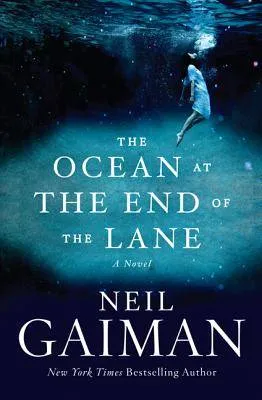 The Ocean at the End of the Lane by Neil Gaiman
The Ocean at the End of the Lane by Neil Gaiman
Here is the text message I sent my husband when I finished reading this book: “If I randomly burst into tears at weird times over the next, oh, rest of my life, it’s because Neil Gaiman tore out my heart, ripped it to shreds, then covered it with sparkly band-aids. This book was beautiful, perfect, amazing. Nothing about it could have been better. Every single letter is perfection.” If ever a hyperbolic, gushing gut reaction were appropriate, maybe it’s for describing this sad, enveloping, deeply lovely story.
–Jeanette Solomon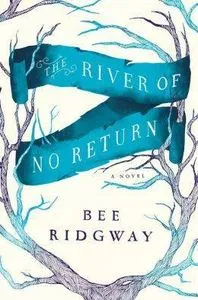
Hey. Do you enjoy staying up until six o’clock in the morning reading because it’s impossible to put a book down? If you do, may I humbly recommend The River of No Return. Nick is a soldier fighting in the Napoleonic Wars when he’s transported in the middle of battle to the 21st century and inducted into the Guild, an organization that teaches and controls time travelers. It quickly turns out the Guild isn’t telling Nick or the other time travelers the whole truth: they can go back in time as well as forward, and they need Nick to go back to the early 19th century to spy on their enemies, the Ofan. There are very few books I’d call impossible to put down, but this is one of them. The story is slow until Nick travels back to the 19th century, and then it picks up in a big way. Nick is a great character who is a cross between d’Artagnan and Byron; and his true love, Julia, is an aptly named fighter for justice. I.e. I LOVE HER. Add to that rich historical detail and wibbly-wobbly timey-wimey plot complications and I’m a total sucker for this book.
–Tasha Brandstatter
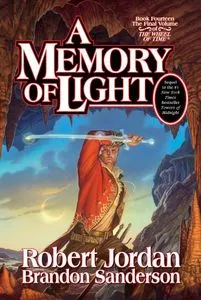
Decades of reading come to an epic end. A Memory of Light is a doorstopper of a book, a literal brick of bound pages that could prop up a school bus full of overweight children at the top of a steep hill. The first book in the series was published in 1990, six years after Jordan started writing it. And now, twenty-three years later and, sadly, after the death of the author himself, we have the last book. And it is good. Sanderson (or Jordan, it is hard to tell how much actual control Sanderson has) let a little bit of George R. R. Martin seep in and has finally lost his fear of the killing of characters.
The book is as satisfying an ending as one could hope for, with epic battles and fantastic (in every sense of the word) scenes and characters. For fans of fantasy, this is about as good as it gets. We even get a new minor character, Androl, that we really get to root for and who threatens to steal the whole book.
That being said, the writing itself is not the finest of literature; Sanderson’s (or is it Jordan’s?) similes are grating and any and all symbolism is beat-the-reader-over-the-head obvious and therefore superfluous. Still. Sanderson did a very good job finishing Mr. Jordan’s series and I for one salute him. Fans will certainly not be disappointed.
–Johann Thorsson
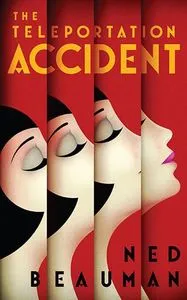
This novel is an absolute riot — the most deliriously fun mix of low- and high-brow of any book I’ve read in a long time. There’s philosophy, there are bad sex jokes, there’s history, there’s slapstick comedy, and then there are more sex jokes. What’s it actually about? Good effing question. Basically, a guy named Egon Loeser’s is on a quest to break his dry spell with the ladies. But the twist is that it takes place in 1930s Berlin, and Paris, and Los Angeles. There are spies, there are arguments about public transportation in L.A., there are mad scientists, and yes, there are teleportation devices. And all this happens in a mere 357 pages. I loved it — and if you don’t, we can’t be friends. Sorry.
–Greg Zimmerman
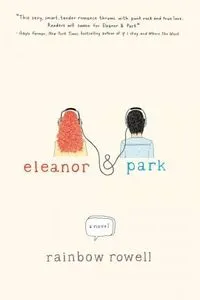
Eleanor and Park by Rainbow Rowell
I love John Green, but I get it when people say there is just too much….something…there. Too much self-awareness. Too much wit. For those people, I would recommend Rainbow Rowell. Eleanor and Park are the perfect angst-ridden teenagers to balance out the precocity of Hazel and Gus. Their story is infinitely realistic. It celebrates geek culture, and it is honest about young love. And, I think that Park’s dad may just be my favorite dad in all of current fiction. He gets it. Oh, and there are comic books and mixed tapes instead of iPads and playlists. That’s pretty cool, too. This is definitely my pick for best YA of the year…so far.
–Cassandra Neace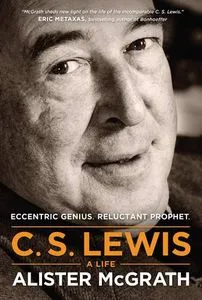
I have always considered C.S. Lewis to be the most fascinating literary figure of the twentieth century. There is an odd symmetry to his life–an ardent atheist turned devout Christian, a struggling academic who became a respected thinker, a schoolboy who pursued a relationship with a woman twice his age and later shared an unconventional marriage with a woman sixteen years his junior. In this latest Lewis biography, Alister McGrath provides an intimate, highly readable account of the events and people who shaped Lewis’s mind and an in-depth look at some of his greatest works. What sets this book apart from all the Lewis biographies that have come before it is McGrath’s redating of Lewis’s conversion to Christianity, something that has never been done before. Brilliant.
–Kate Scott
_________________________ Sign up for our newsletter to have the best of Book Riot delivered straight to your inbox every two weeks. No spam. We promise. To keep up with Book Riot on a daily basis, follow us on Twitter, like us on Facebook, , and subscribe to the Book Riot podcast in iTunes or via RSS. So much bookish goodness–all day, every day.

